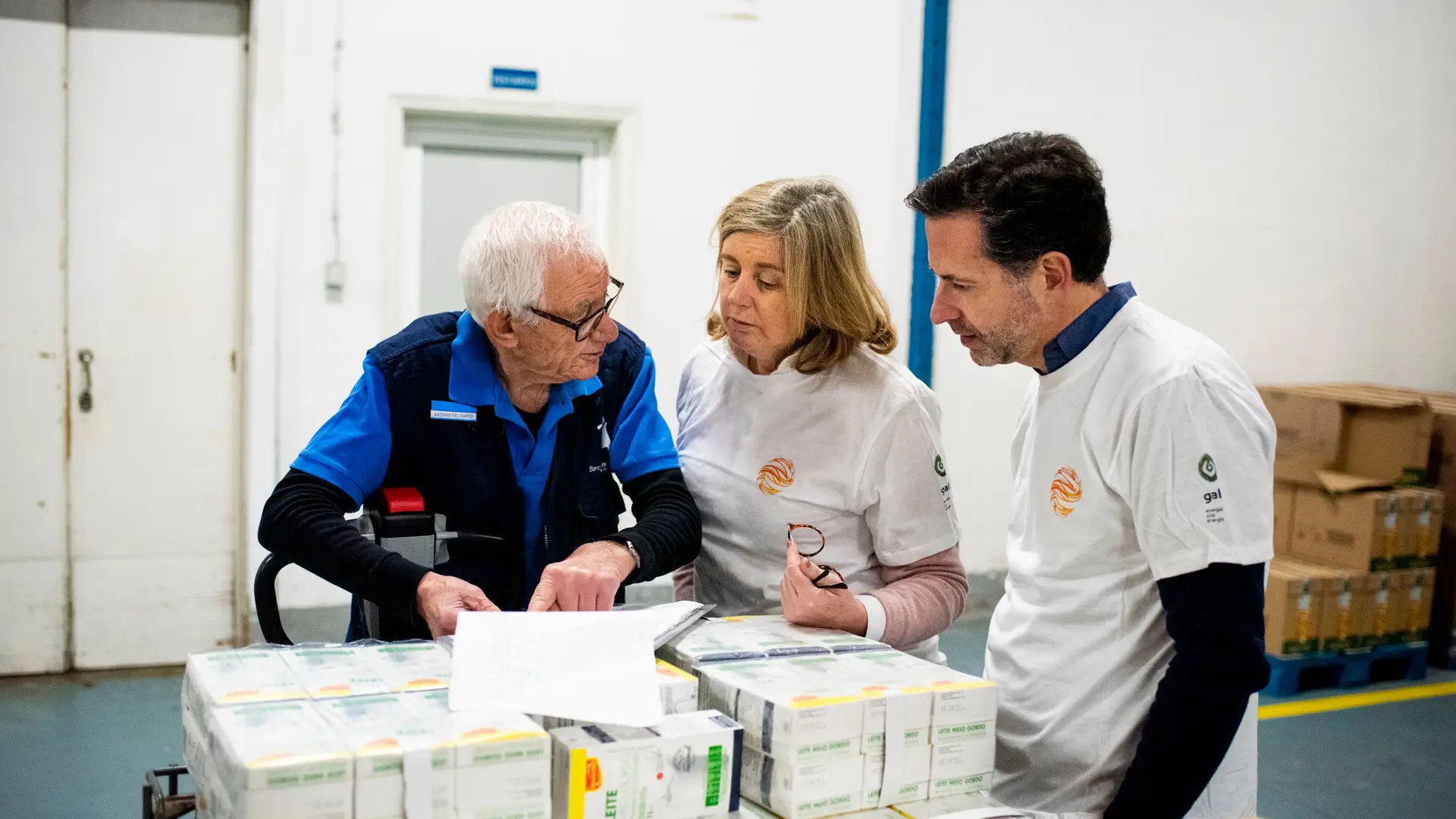It was in June 1992 that Food Banks Against Hunger, founded a year earlier in Lisbon, promoted the first food collection drive, one that would turn into a traditional event throughout the country over the next three decades. The network of banks has grown since then, but the mechanisms have remained the same: total dependence on donations from “friends” of the project, volunteers and a management and organisation formula geared to achieving maximum efficiency in supporting Portuguese families. “We are extremely proud of this management model, as it enables us to feed 4% of the Portuguese population that, unfortunately, need help”, says Isabel Jonet.
It was the president of the Portuguese Federation of Food Banks herself that entered into a partnership agreement with Galp, represented by the company´s Chief Operating Officer (COO) Commercial, Teresa Abecasis, on 08 February. The supportive relationship the energy corporation has maintained with the charitable institution has now been reinforced in the form of a donation to the amount of 375,000 euros in fuel over the next three years. This support will ensure the continued implementation of the logistics operations of the federation´s 21 units located all over the country.

Teresa Abecasis and the senior management of the Commercial department returned to Food Bank for another volunteer initiative
“This programme consists of the donation of fuel to the country´s 21 Food Bank units for their logistics and transport activities, thereby ensuring that the products collected actually reach the institutions and families in question”, points out Teresa Abecasis. As far as the COO is concerned, this is a way of “ensuring the machine never stops”, in addition to guaranteeing that Galp generates a positive social impact in the most deprived communities. “We have a responsibility to actively support society and we need to find partners to help us reach out to families in need. The Food Bank has been doing an absolutely amazing job”, she added, before joining her team to help out with the Lisbon-based bank´s logistics operations.
“The Food Bank has been doing an absolutely amazing job”
In addition to the donation of fuel, the company has also provided support to the amount of 30,000 euros to ENTRAJUDA, the right arm of the institution managed by Isabel Jonet. “We created ENTRAJUDA, which is a kind of social consultancy service designed to provide assistance in the management of charitable institutions all over the country”, explains the executive. The aim is to provide other social entities with management and organisational skills, thereby enabling them to be as efficient and effective as possible in their respective activities. At the same time, ENTRAJUDA also guarantees that other non-food donations get to where they are most needed, such as computers, furniture and surplus production donated by the economic sector.

Isabel Jonet highlights the partnership between Galp and the Food Bank
In the opinion of Isabel Jonet, “Galp has been one of the Food Bank´s most noteworthy partners” over the last few years, not only due to the donations made, but also due to being a source of “numerous volunteers” dedicated to helping out in the institution's daily operations every month. “I would like to thank you for coming back time and time again, because companies often become involved in initiatives and then lose interest. Large numbers of volunteers coming on a regular basis enables us to establish a partnership that is very important to us”, she underlines.
Good will is the key to success
The Portuguese Federation of Food Banks does not receive, by choice, any support from the State for its operations, and as such depends entirely on the solidarity of the thousands of volunteers involved and the good will of the companies that turn into “friends” of the cause. More than 2,000 tons of products were donated in the most recent food collection drive, in an initiative that normally takes place twice a year. Despite being of paramount importance, Isabel Jonet explains that these collections only represent 13% of the total amount of food managed by the institution. The institution's volunteers and workers are essential in order to deal with the thousands of tons of food that pass through their warehouses.











